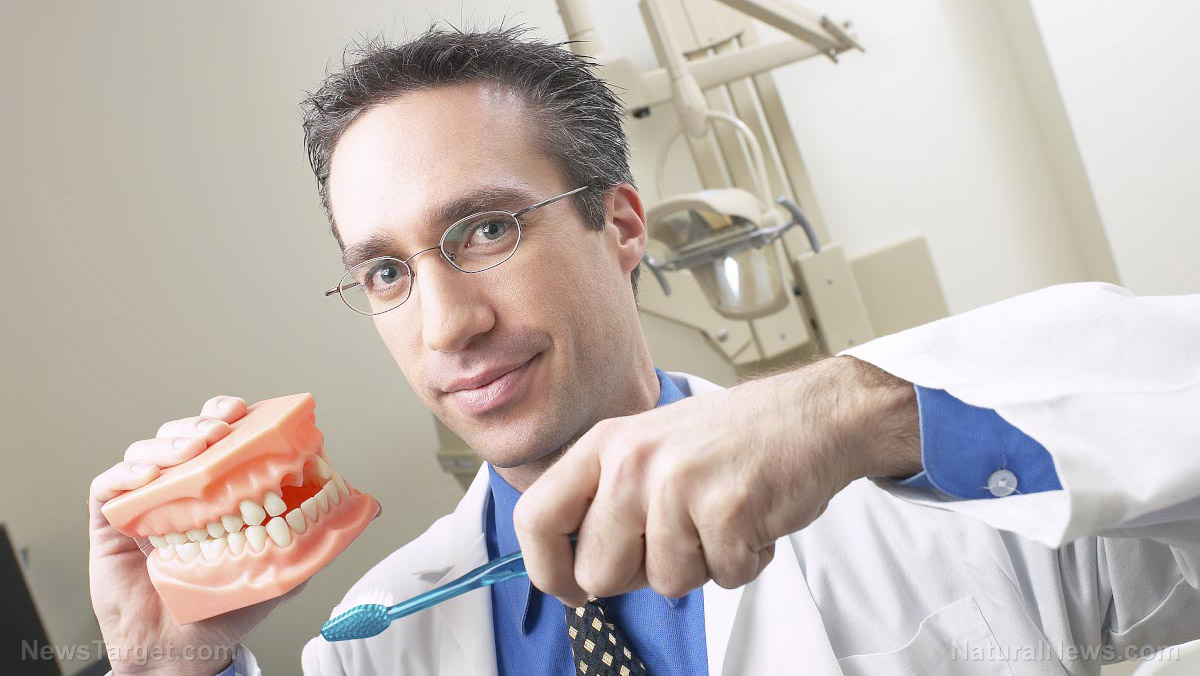Health experts urge dentists to question your sexual habits to assess risk of cancer-causing STDs; dental professionals resist
01/22/2018 / By Jhoanna Robinson

Health experts have come to the conclusion that dentists should participate more in preventing human papillomavirus (HPV) and the cancers that are related to it by possibly asking patients about their sex lives in order to assess said patients’ risk of vulnerability to the disease.
Around 79 million Americans are infected by HPV, which is responsible for 70 percent of oropharyngeal cancers in the country, according to the Centers for Disease Control and Prevention, making it as common as the common cold.
HPV is transmitted via anal, oral, and vaginal sex. It is now associated with 9,000 cases of head and neck cancers in the United States.
“What we’re going to find over time is that HPV is going to be a more common cause of cancer. We need to worry about how to prevent it,” Ellen Daley, a public health professor at the University of South Florida, told Daily Mail Online.
However, knowing about a patient’s sexual history does not guarantee the prevention of HPV-related oral cancers. “If [dentists] want to [ask patients about their sex lives], they can. But that’s not relevant since HPV is so common. We need to get past how it’s transmitted and worry about preventing cancers,” Daley said.
According to statistics, of the nearly 16,000 yearly cases of oropharyngeal cancers – cancer of the tongue, pharyngeal wall, and tonsils – between 2008 and 2012, 72 percent of those had been caused by HPV, and is four times more common in men than in women.
In Daley’s study, she and her colleagues assessed the diagnostic activities of 33 dentists. They found out that many dentists have no idea of how to approach the subject of HPV and don’t have the necessary communication skills that would help their patients get informed regarding the risk of incurring certain cancers if they have HPV.
The power of the elements: Discover Colloidal Silver Mouthwash with quality, natural ingredients like Sangre de Drago sap, black walnut hulls, menthol crystals and more. Zero artificial sweeteners, colors or alcohol. Learn more at the Health Ranger Store and help support this news site.
What dentists and dental hygienists are good at is screening for oral cancers by examining the area under the tongue and looking in the back of a patient’s mouth. However, HPV-related oral cancers are hard to detect because they emerge in the throat at the back of the tongue, or in the folds of the tonsils, according to the American Dental Association.
HPV oral and oropharyngeal cancers are more difficult to detect than smoking-related cancers because the symptoms are not obvious to the patient – they might not feel any pain at all, even though they already have the cancer.
Over 40 types of HPV can affect the mouth and genitals, but HPV 16 and 18 are the two most cancer-causing types. HPV type 16 is the cause of 60 percent of all oropharyngeal cancers, data from the Centers for Disease Control and Prevention (CDC) showed. HPV non-cancer types usually cause warts in the mouth or throat.
Some symptoms to be anxious about include a persistent sore throat, earaches, enlarged lymph nodes, sudden weight loss, and difficulty in swallowing. However, some people with HPV may not show signs of symptoms at all.
HPV has a vaccine that can help protect against the disease. It is given to children between the ages of nine and 12 years old in the U.S. and the United Kingdom. Condoms and dental dams can also be used to prevent the spread of HPV. (Related: Lead developer of HPV vaccine admits it’s a giant, deadly scam.)
For more stories regarding the influx and possible sources of cancer, visit CancerCauses.news today.
Sources include:
Tagged Under: dentistry, dentists, health freedom, HPV, infectious disease, invasion of privacy, medical ethics, medical surveillance, oral cancer, oropharyngeal cancer, Sex Life, sexual habits




















